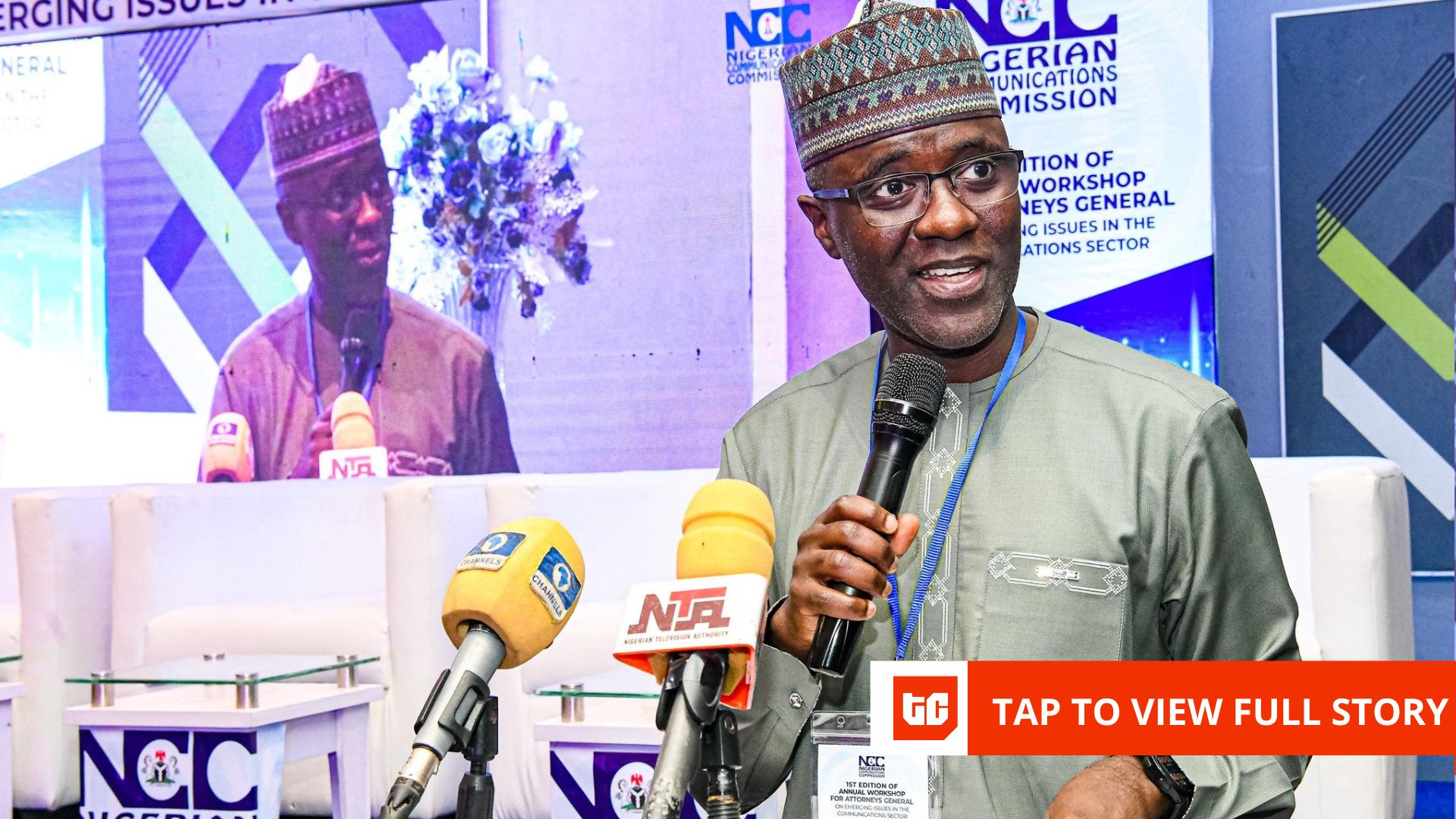With only four months left before the National Broadband Plan (NBP) 2020–2025 expires, the Nigerian Communications Commission (NCC) insists that its ambitious target of 70% broadband penetration by December 2025 is still within reach. However, as the numbers and industry realities indicate, the road to that finish line is littered with obstacles, including fiber vandalism, declining subscriptions, and wavering investor confidence.
“We are targeting 70% broadband penetration by the end of this year through strategic pricing frameworks and incentives,” said Aminu Maida, the NCC’s Executive Vice Chairman, represented by Abraham Oshadami, Executive Commissioner of Technical Services, at the African Peering and Interconnection Forum (AfPIF) in Lagos on Tuesday.
“We are facilitating investments in fibre optic cables, 5G deployment, and rural connectivity. The 90,000-kilometer fibre project is already familiar to many of you, and we will continue to expand our digital backbone.”
As of June 2025, Nigeria’s broadband penetration stood at 48.78%, according to NCC data, compared to 45.61% in January 2025. While it marks a faster pace than previous years, the gap remains daunting: an additional 21.22% must be added within six months to hit the 70% benchmark.
Historical figures highlight the difficulty of that ambition. In 2024, broadband penetration grew only 1.90% across the entire year. In 2023, it dropped from 48.20% in January to 43.71% in December. A 2.01% decline was recorded in 2021. The sector’s best annual gains came in 2020, with an increase of 6.53%, a far cry from what is now required.
According to NCC data, Nigeria’s telecom industry lost over one million internet subscribers in H1 2025. This decline, attributed to the impact of increased tariffs, the SIM-NIN linkage exercise, and rising device costs, directly challenges the country’s ambition of achieving 70% broadband penetration by the end of 2025.
Given that broadband penetration was at only 48.78% by June 2025—well below the target—the continued loss of users puts the 70% goal further out of reach.
Maida remains optimistic, highlighting milestones such as the growth of the Internet Exchange Point of Nigeria (IXPN), which now delivers peak traffic of one terabit per second as of April 2025, a first in Nigeria’s digital history.
But for all the optimism, the broadband ecosystem is still fragile. Fibre cuts remain a national crisis, with service providers reporting 30 to 43 cuts daily, often due to vandalism, road construction, or theft. The Nigeria Cybersecurity Outlook Report by Deloitte (2024) also warned of rising threats from ransomware and insider attacks, straining operators’ already thin margins.
Investment instability compounds the problem. While operators have announced billion-dollar commitments in infrastructure this year, the sector has suffered years of regulatory uncertainty, high operational costs, and an unpredictable foreign exchange environment.
“Nigeria has a fantastic broadband plan,” said Israel Olatunji Tijani, founder of ChatVE Limited, an automated virtual assistant chatbot provider. “But we still see over 130 million Nigerians living more than 50 kilometers away from a fibre landing point. That means millions are left digitally stranded, even as the numbers look good on paper.”
As December approaches, the NCC’s 70% target looks daunting. Meeting it would mark a symbolic triumph, closing the NBP’s five-year cycle with a bold achievement. Missing it would not be surprising, given the structural headwinds the sector has faced.
Mark your calendars! Moonshot by is back in Lagos on October 15–16! Join Africa’s top founders, creatives & tech leaders for 2 days of keynotes, mixers & future-forward ideas. Early bird tickets now 20% off—don’t snooze! moonshot..com









